Unable to accept the reality that a Chinese company could develop a highly popular app called TikTok, the United States has been trying everything in its power to control it. ByteDance now has two options – either sell it to American owners, or get ready to be banned. The Senate voted 79 to 18 after the House passed the legislation by a margin of 360 to 58.
President Joe Biden, who has previously said he would back the legislation, is expected to sign it into law on Wednesday. To expedite efforts to take over the short-video app, the legislation was attached as part of a larger US$95 billion package of foreign aid to Ukraine and Israel. From the initial 6 months, the latest revised legislation now gives ByteDance 9 months to sell.
Interestingly, the bill also says ByteDance cannot control TikTok’s secret sauce – the secret algorithm that powers the “For You” page, the reason why the app has been downloaded more than 4 billion times. When users open TikTok, the first thing they see is the “For You” page – an endless stream of videos uniquely tailored to each user. No two feeds are the same – the secret weapon that has made the app hugely popular.
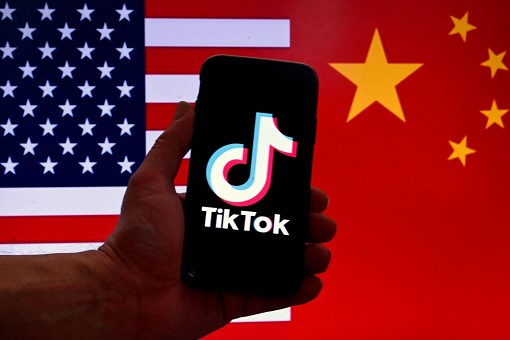
To put it in perspective, the TikTok’s “For You” algorithm works like the Google’s search engine’s algorithm which dynamically determines which website or page on the Internet is the most relevant for a specific key word or key phrase and displays its first. Getting featured on “For You” page can either make or break a TikTok influencer’s video and potential career.
Therefore, to tell ByteDance that it can no longer control its secret algorithm is like telling Google that it must surrender its search engine algorithm. For years, American politicians have expressed concerns that Chinese authorities could force ByteDance to hand over U.S. user data. Like Huawei, the U.S. conveniently uses national security to threaten Chinese products.
So far, there has been “no evidence” the Chinese government has actually accessed the personal information of TikTok’s U.S. users or used that data to influence them. It appears the U.S. was trying to destroy TikTok because of jealousy more than due to national security threat. And Washington wanted to take over (or rather rob) the app by force due to its popularity.
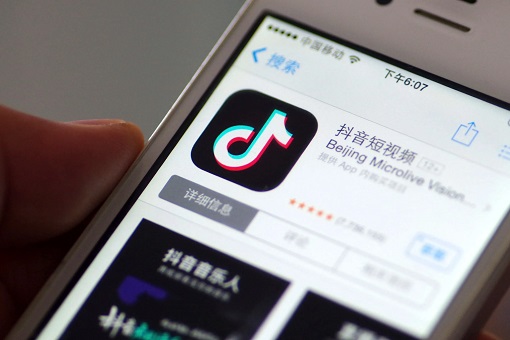
Accusing TikTok of serving as a Trojan horse for Beijing to manipulate – even control – America and steal sensitive data on U.S. citizens is just a lame excuse. Hilariously, Biden is repeating Trump’s mistake to ban the same app in July 2020, threatening to shut down the extremely popular social media app if it could not be sold by its Chinese owner Bytedance to a U.S. buyer.
TikTok has about 170 million users in the United States, its biggest market outside of China. Its revenue was around US$20 billion last year. Founded in 2012 by entrepreneur Zhang Yiming, TikTok owner ByteDance reportedly had a private valuation of between US$105 billion and US$110 billion in May 2020, making it the most valuable start-up in the world.
ByteDance recorded revenue of US$120 billion in 2023 – up about 40% from a year earlier, driven by TikTok’s exploding growth. In comparison, Meta’s 2023 revenue rose 16% to US$134.90 billion. In the U.S. alone, the short video app’s revenue hit US$16 billion last year. One Bloomberg analyst even speculated that it could be worth up to US$180 billion in an IPO (initial public offering).
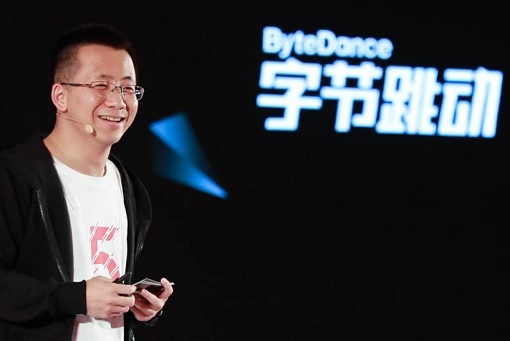
For years, tech giants like Facebook and YouTube have been competing directly with TikTok. In April, 2020, thanks to Coronavirus lockdown, TikTok amassed over 2-billion downloads on Google Play Store and Apple’s App Store, largely because people “trapped” at home wanted to keep themselves entertained. It came just 5 months after it surpassed 1.5 billion downloads.
It means on average, there were 100-million downloads every month leading to the 2-billion milestone. It became the first app after WhatsApp, Instagram and Messenger to break past the 2-billion downloads since 2014. As TikTok’s popularity skyrockets, so does its revenue. Users spent a whopping US$456.7 million when it hit a 2-billion downloads, up from US$175 million when it hit 1.5-billion downloads.
In what appears to be a shameless theft of the Chinese developed app, former treasury secretary Steven Mnuchin revealed that he was putting together a group of investors to buy TikTok. He said – “I understand the technology, it’s a great business, and I’m going to put together a group to buy TikTok”. So, is TikTok being forced to sell because of national security or business greed?
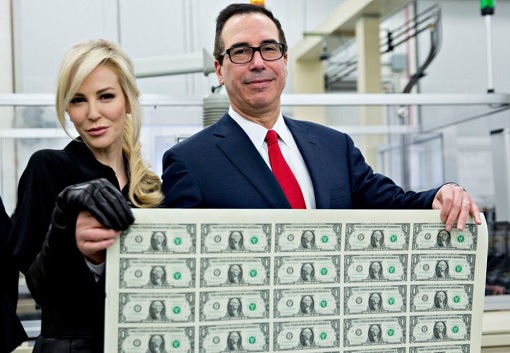
Forcing ByteDance to sell TikTok to Americans is like forcing Alphabet to sell Google to the Chinese. If it’s impossible for Google’s algorithm to fall into the hands of China, it’s also a wishful thinking that TikTok’s “secret sauce” can fall into the possession of the United States. Yes, the engine or the algorithm is the reason why Microsoft, Oracle, WalMart, Twitter, Netflix and even Triller, a rival app, wanted to buy TikTok previously.
But according to the South China Morning Post (SCMP) – “The car can be sold, but not the engine.” Even if ByteDance wants to sell TikTok’s algorithm, it can’t because an approval from Beijing is needed before Chinese companies can export their technologies. On the other hand, even if China agrees to allow ByteDance to sell TikTok, it can only be sold without the algorithm.
However, TikTok requires the algorithm to function, and the algorithm is Chinese home-grown technology, which in turn is considered China’s national security. Clearly, TikTok is a goldmine. When Trump signed an Executive Order on August 2020 to ban TikTok, Beijing slammed the “forced sale” of TikTok as “theft” and labelled the U.S. as nothing but a “rogue country”.
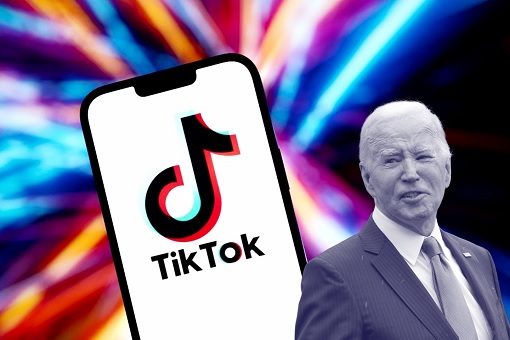
But even if Biden signed it, it’s not a done deal. TikTok has said it will fight any ban or forced sale of the app in the courts because the bill violated the “First Amendment” of the US Constitution, which protects freedom of speech. When the state of Montana tried to ban the app in 2023, a federal judge found it “oversteps state power and infringes on the constitutional rights of users,” with a “pervasive undertone of anti-Chinese sentiment.”
The legal challenge is not merely about first amendment alone. Previously, TikTok has filed a lawsuit against the U.S. government over President Trump’s executive order, arguing that the ban prevents the company from due process, as guaranteed by the Fifth Amendment, which says that no one shall be “deprived of life, liberty or property without due process of law.”
On September 27, 2020, a preliminary injunction was issued by Judge Carl J. Nichols blocking enforcement of Trump’s executive order to ban TikTok. Again, in December 2020, U.S. District Judge Carl Nichols in Washington said Trump overstepped his authority and therefore, blocked his administration’s attempt to ban TikTok in the country.
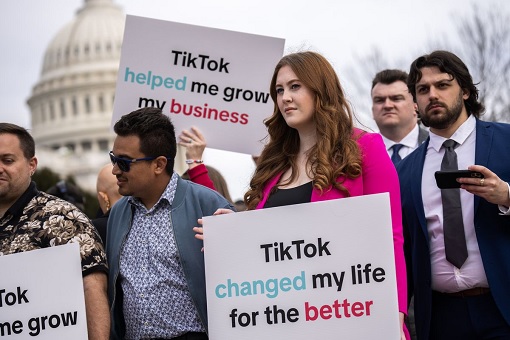
Crucially, many of TikTok’s 170 million monthly active U.S. users rely on the app to generate income. That includes 7 million small businesses that use the platform to drive growth, according to a report from Oxford Economics. About 39% percent of small businesses say that access to TikTok is critical to their businesses’ existence, while 69% of small businesses say TikTok has led to increased sales in the past year.
TikTok content creators who rely on the app have been trying to make their voices heard. For example, Tiffany Cianci, a content creator who has more than 140,000 followers on the platform, had encouraged TikTokers to show up in front the Capitol building to protest against the bill. She believes TikTok is the safest platform, arguing – “If our data is not safe on TikTok, I would ask why the president is on TikTok.”
Amusingly, Trump, who had tried to get rid of TikTok, has suddenly made a huge “U-Turn”. Making a comeback to redeem his defeat to Biden, the former POTUS who may return to the Oval Office said – “If you get rid of TikTok, Facebook and Zuckerschmuck will double their business. I don’t want Facebook, who cheated in the last Election, doing better. They are a true Enemy of the People!”
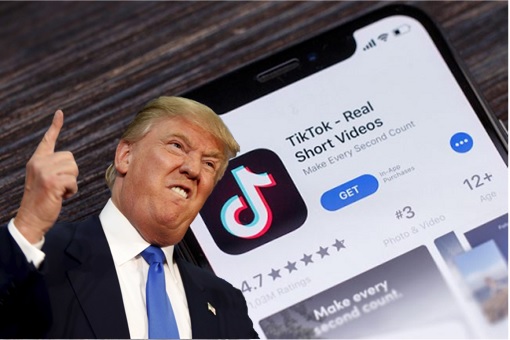
China previously said it would oppose a forced sale of TikTok and has indicated that it does not have any plan to part with the app. In fact, Beijing warned ByteDance that it should strictly abide by Chinese laws and regulations – indicating that in worst case scenario, TikTok will shut down in America. China may retaliate, banning American apps, not to mention companies like Tesla or Apple.
Other Articles That May Interest You …
- U.S. Tries To Force ByteDance To Sell TikTok Again – But There’s No Way In Hell China Will Allow The Sale
- U.S. & Europe Threaten Malaysia To Ban Huawei 5G – Top 10 Reasons Why Anwar Government Should Call The West’s Bluff
- Electric Car As Cheap As $11,000 – How China Beats The U.S. In Electric Vehicles & Leaves Global Brands In The Dust
- Biden Repeating Trump’s Mistakes – Here’s Why The U.S. Cannot Ban TikTok Like Huawei
- U.S. Tech War On China Backfires – How Sanctions Boosting China Chipmaking Industry To Become Self-Sufficient
- Apple’s Secret $275 Billion Investment In China – A Warning Why The U.S. Cannot Afford To Start A War With The Chinese
- How TikTok Erased $250 Billion From Facebook In 1 Day – The Biggest Wipeout In Stock Market History
- A Desperate Move To Rebrand Facebook – Here’s The Toxic Reason Zuckerberg Changed Its Name To “Meta”
- Trump To Block Downloads Of TikTok & WeChat On Sunday – But Every Teenager Knows How To Use VPN To Bypass It
- Here’s The Real Reasons Trump Bans TikTok – And It Has Nothing To Do With National Security Threat
- From Trade War To Tech War – After 5G Technology, The US Aims To Cripple China’s Artificial Intelligence

|
|
April 24th, 2024 by financetwitter
|


|

|

|

|

|

|




























Comments
Add your comment now.
Leave a Reply